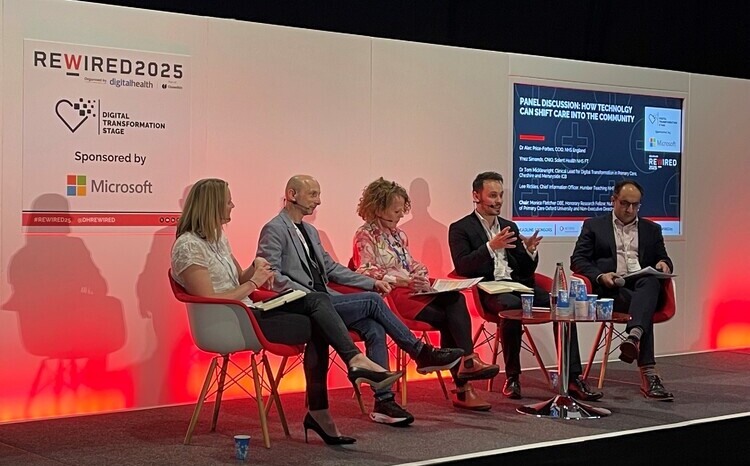Combined Government Gateway Review Due for IT Programme
- 10 October 2002
The National NHS IT Programme is scheduled to be submitted to a combined Government Gateway review by the end of October, with a full business case then due to be submitted to Treasury for approval by November.
The latest version of the timetable for the National IT Programme was detailed by Jeremy Thorp, the NHS Information Authority’s director of development (programme and service delivery), last week during an exclusive interview with E-Health Insider (EHI).
Mr Thorp also revealed that once suppliers had been short-listed nationally, he anticipated that the contracts for actually delivering the programme would be held at a local level by NHS trusts and PCTs. "We’re still exploring this but would expect contracts to be held at the local level," Mr Thorp told EHI.
"We don’t intend that strategic health authorities (StHAs) would hold contracts," confirmed Mr Thorp. He highlighted Birmingham’s Blakberd project, a joint procurement of EPR systems by 12 trusts, as a model of how contracts may be awarded:
"The model we are looking at here in Birmingham is for each organisation to have its own contract – but under the umbrella of Blakberd," explained Mr Thorp. He said this was the only model that could meet corporate governance arrangements.
However, Mr Thorp added, that other models are also being explored. "Does one trust act as the lead for a group of ten, and have service level agreements with them?"
Commenting on the consultation this summer on the proposal for an Integrated Care Records Service (ICRS) Mr Thorp said there had been a "very positive response", but that not everyone had understood that it was about providing a top-level vision.
According to Mr Thorp, the NHS and industry can be divided into two camps: those who “get” the ICRS concept and those who didn’t.
“Some said we need to give far more examples about what people can expect,” said Mr Thorp. Those that got it asked the question, "How do we procure it"?
Offering his personal explanation of ICRS he told EHI: "ICRS is to support the delivery of high quality patient care across the whole healthcare system."
He continued: "My kind of mental picture of electronic patient records is a series of columns, and electronic health records is the plinth. This is the model of the old temple.
"What we are trying to do with ICRS is go beyond that, we need a record service integrated across the care continuum. Information needs to be available across the whole care process."
Asked whether the ICRS vision was too complex, Mr Thorp said: "We were conscious when we started on the specification that there were two choices: break it down into little pieces or, if we mean business about the NHS Plan, do we say we need the vision of where we are trying to get to?"
The risk of a series of stand-alone components, he added, was that some might "wind up going down a dead end". Having set out the vision he says the challenge is now to set priorities and break it down into a series of manageable steps.
Mr Thorp says that since July the NHSIA has been working out what “phasing” needs to happen to deliver the national programme. "We are phasing in terms of the four elements to ICRS."
He stressed that the full programme would not be delivered for seven to ten years, and said that the different types of service to be delivered fell into four different quadrants: access services, specialist services, communications services and finally integrated services.
At the basic level of access services the aim is "initially about opening things up and allowing people to access things.” The final quadrant will be about providing services such as scheduling across different organisations, rule based decision support making and integrated care pathways.
Mr Thorp stressed that the "products don’t exist at the moment" to deliver in the integrated quadrant. This ambition to deploy highly ambitious systems that don’t currently exist that is heavily influencing the approach to selecting partners to deliver the programme.
"In selecting PSPs (Prime Service Providers), we didn’t want people who can only play in one quadrant. We want people who can take the whole vision and can demonstrate vision and leadership across seven to ten years," said Mr Thorp.
Part of this vision and leadership will be to work with the NHS to develop detailed schedules for the programme as part of contracts awarded. "That is where the PSP model comes in. We are part of a development partnership".
Mr Thorp revealed a full procurement strategy is "the major thing we are working on". This is then scheduled to be submitted to a combined Gateway review by the Office of Government Commerce by November.
“We have a combined Gateway review, one and two, simultaneously at the end of October,” said Mr Thorp. Assuming this is cleared a business case will then be submitted to Treasury. "A business case will be going to Treasury, hopefully in November," stated Mr Thorp.
Once signed off by Treasury the OJEC advert for ICRS is due to be placed in December, with a long list of PSPs by April 2003. He added that he expected the first PSP contracts to be awarded by the end of 2003.
Mr Thorp argued that the national procurement programme is still running to schedule and that a flying start from the beginning of April 2003 was never likely. "Because ICRS had to go through a full procurement process it was never going to be likely that we would have contracts in place by April 2003."




